The registration for the ClimateExistence symposium November 20 is now closed, and there are no remanining seats. Please let us know if you can’t come and want to leave your spot for somebody else.
If you have any questions, please contant malin.ostman@cemus.uu.se concerning the day-program, and daniel.mossberg@cemus.uu.se for the evening social.
When: November 20, 2025 at 13.15-17.30 CET followed by evening social
Where: Humanities Theatre, Uppsala University, Thunbergsvägen 3C, Uppsala, see map here: https://link.mazemap.com/sqAhi7NL
Program – Thursday November 20
The program will be updated up until November 20. Click on rooms to get directions and maps.
Time |
Program |
| 13.15-13.30 | Malin Östman Welcome to ClimateExistence! and today’s symposium in Uppsala
Sara Hjelmstedt Artistic contribution [22-008 Humanities Theatre, English Park Campus] |
| 13.30-14.10 | Mikael Kurkiala Control or meaningfulness? Existential dilemmas at the brink of the abyss [22-008 Humanities Theatre, English Park Campus] |
| 14.10-14.50 | Anita Goldman The Geography of Wild Hope [22-008 Humanities Theatre, English Park Campus] |
| 14.50-15.30 | Panel with Udesh Fernando, Eva Forsgren, Anita Goldman and Mikael Kurkiala moderated by Malin Östman [22-008 Humanities Theatre, English Park Campus] |
| 15.30-16.00 | Fika break with coffee, tea and smaller sandwich, and Formas Climate Dialogue Station hosted by Anna Kaijser and Åsa Moberg [22 Mingle space outside of Humanities Theatre] |
| 16.00-17.30 | Parallel sessions
Session 1
Lisa Pelling and Marika Palmér Rivera The Life We Live Here – Insights from Conversations about Climate Change and the Green Transition
Session 2
Pella Thiel Showing up as the Baltic Sea
Session 3
Martha Middlemiss Lé Mon, Sofia Oreland, Marie Vildhammar Okker, Hanna Soldahl, and Sofia Svarfvar Sofia Oreland, PhD Candidate, Dept of Theology, Uppsala University Reaching beyond science? Faith as a resource for climate action Marie Vildhammar Okker, PhD Candidate, Dept of Theology, Uppsala University “The most important can be kept” – Existential perspectives within the scope of climate anxiety, and how young adults cope with the existential concerns Hanna Soldahl, Advocacy Officer, and Sofia Svarfvar, Program Manager Southern Africa Program, Faith, development and faith-based actors voices at COP 2025 Examples and illustrations from Representatives from Act Church of Sweden, the branch for international aid and development of the Church of Sweden. The conversation will be led by Martha Middlemiss Lé Mon, PhD, Director Centre for Multidisciplinary Research on Religion and Society (CRS), Uppsala University. [22-1017 Seminar room, English Park Campus]
Session 4
Ingrid M. Rieser, Bengt Gustafsson, and Isak Stoddard To the stars and back again – hope, faith and trust on our blue planet Bengt Gustafsson is professor emeritus of astrophysics, an expert on black holes, the author of many books and one of the professors that helped students start the very first CEMUS course. Isak Stoddard recently completed his PhD entitled Perilous times: carbon budgets and the cosmopolitics of climate mitigation where he explored a variety of ways to attune to less extractive and more effectual responses to the climate crisis. He has worked in various capacities at CEMUS over the last two decades. Ingrid M. Rieser is the host of the eco-philosophical podcast Forest of Thought. [2-0076 Seminar room, English Park Campus]
Session 5
Vanessa Masterson, Hanna Sinare, Inger-Helene Gråik, May-Britt Öhman, Master students and Commenters Indigenous perspectives on and expertise within climate change, justice, technology and sciences Read more: https://powering-change.org/2025/11/03/ [2-0024 Seminar room, English Park Campus] |
| 18.00- | Evening social at CEMUS with open stage and more (see invitation email for details) [CEMUS Library, Geocentrum, Villavägen 16] |
Guests and contributors
This section will be updated as guests are confirmed.
Udesh Fernando [Course Coordinator CEMUS, Uppsala University and Board Director, Sarvodaya Institute of Higher Learning]
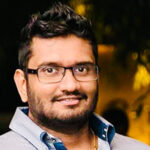 Udesh is a development professional and educator who is currently a Board Director at the Sarvodaya Institute of Higher Learning in Sri Lanka. As a Swedish Institute scholar, he holds an M.Sc. from the University of London and is pursuing another at Uppsala University. His career includes policy and research roles focusing on reconciliation, democratic dialogue, and constitutional reform. He is currently based in Sweden, where he combines his studies with course coordination at Uppsala University’s Centre for Environment and Development Studies (CEMUS).
Udesh is a development professional and educator who is currently a Board Director at the Sarvodaya Institute of Higher Learning in Sri Lanka. As a Swedish Institute scholar, he holds an M.Sc. from the University of London and is pursuing another at Uppsala University. His career includes policy and research roles focusing on reconciliation, democratic dialogue, and constitutional reform. He is currently based in Sweden, where he combines his studies with course coordination at Uppsala University’s Centre for Environment and Development Studies (CEMUS).
Eva Forsgren [Chair Amnesty Sápmi]
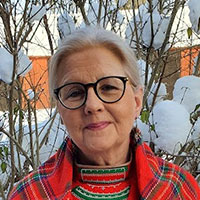 Eva Forsgren is a Sami with her heritage in Jovnevaerie Sami village. She sits on the board of the Sami Association in Uppsala. Eva Forsgren is involved in human rights issues through her chairmanship of Amnesty Sápmi, a non-profit organization within Amnesty International Sweden. Through that organization, she works with information and advocacy on Sami rights. Focus areas are advocacy against racism, hatred and threats against the Sami, land exploitation, and the repatriation of human remains and sacred objects to Sápmi, Sami land. For several years, Eva has been working on handling issues related to the Archive and Photo Collection of the former State Institute for Racial Biology. Eva is also a recreational musician and runs her own company in information management and lecturing.
Eva Forsgren is a Sami with her heritage in Jovnevaerie Sami village. She sits on the board of the Sami Association in Uppsala. Eva Forsgren is involved in human rights issues through her chairmanship of Amnesty Sápmi, a non-profit organization within Amnesty International Sweden. Through that organization, she works with information and advocacy on Sami rights. Focus areas are advocacy against racism, hatred and threats against the Sami, land exploitation, and the repatriation of human remains and sacred objects to Sápmi, Sami land. For several years, Eva has been working on handling issues related to the Archive and Photo Collection of the former State Institute for Racial Biology. Eva is also a recreational musician and runs her own company in information management and lecturing.
Anita Goldman [Author, writer and publicist]
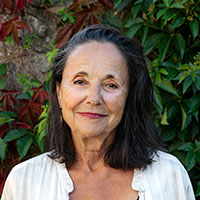 Anita Goldman is a Swedish writer och publicist. She has published almost twenty books — fiction and non-fiction. Her latest book was released in 2025: Det vilda hoppets geografi (“The Geography of Wild Hope”) which is a very broad investigation into our(Western) civilization’s relationship to nature. Goldman also contributes larger opinion-pieces to the foremost Swedish daily, Dagens Nyheter. She offers a thorough civilizational critique within mainstream media, focusing on our nuclear, environmental, and food production practices while also highlighting the importance of reconnecting with nature and finding a spiritual grounding.Goldman is an impatient but avid grower of vegetables and perennials at her house at the south easternmost tip of Sweden, Österlen.
Anita Goldman is a Swedish writer och publicist. She has published almost twenty books — fiction and non-fiction. Her latest book was released in 2025: Det vilda hoppets geografi (“The Geography of Wild Hope”) which is a very broad investigation into our(Western) civilization’s relationship to nature. Goldman also contributes larger opinion-pieces to the foremost Swedish daily, Dagens Nyheter. She offers a thorough civilizational critique within mainstream media, focusing on our nuclear, environmental, and food production practices while also highlighting the importance of reconnecting with nature and finding a spiritual grounding.Goldman is an impatient but avid grower of vegetables and perennials at her house at the south easternmost tip of Sweden, Österlen.
Sara Hjelmstedt [Artist and puppet maker]
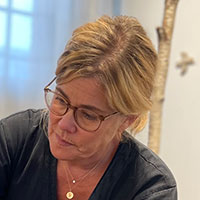 Sara Hjelmstedt is a trained puppet maker who works in the intersection between art and theatre.
Sara Hjelmstedt is a trained puppet maker who works in the intersection between art and theatre.
Her art explores what it means to be human and the struggle to make sense of the world. Sometimes she works with text, but more often with sculpture. The creative process itself becomes an act of resistance against the fast-paced times. She primarily works with paper and text, as these materials are lightweight, malleable, affordable, and environmentally friendly. Sara has extensive experience with papier-mâché, which is her preferred material above all others. It allows for large-scale constructions without becoming heavy, is easy to repair, and the material itself encourages playfulness.
In her latest project, she works exclusively with biodegradable materials, which essentially means returning to traditional craft techniques. It is about humanity and nature, about fear and our responsibilities—but above all, about grief. About guilt and confusion, but also about the joy of creation, direction, and material choices. A melancholic reflection on contemporary life, seen from the perspective of a puppet.
Anna Kaijser and Åsa Moberg [Senior Research Officers, Formas, Research Council for Sustainable Development]
Formas is responsible for the National Research Programme on Climate, which funds research and innovation to support society’s climate transformation. The programme runs until the end of 2028. As we approach the final year of the programme – and consider a possible continuation – we want to engage with stakeholders from research, the public sector, business, civil society, and the cultural sector. The aim is to gather needs, perspectives, and ideas that can help shape Formas’ future work in the climate field. We want to understand what knowledge gaps exist and what is needed to enable transformative societal change – both in the short and long term. During Climate Existence, we will host a dialogue station where we invite participants to share their thoughts on the need for research, knowledge, skills, and collaboration for the climate transformation.
https://formas.se/en/start-page/about-formas/what-we-do/national-research-programmes/climate.html
Mikael Kurkiala [Author and Researcher, the Swedish Church, Associate Professor of Cultural Anthropology at Uppsala University]
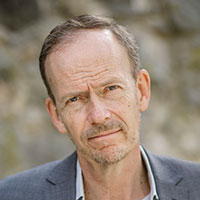 Mikael Kurkiala is associate professor of Cultural anthropology at Uppsala University and researcher at the Church Office. He is the author of, among other titles, In every drum beat the earth’s pulse: about the fear of differences of our time (Ordfront 2005) and When the Soul Goes into Exile: Modernity, Technology & the Sacred (Verbum 2019). He has also participated in several anthologies about the place of existential issues in contemporary society and is the editor of an annual anthology – Tidens tecken – (“Signs of the times”) published by Artos.
Mikael Kurkiala is associate professor of Cultural anthropology at Uppsala University and researcher at the Church Office. He is the author of, among other titles, In every drum beat the earth’s pulse: about the fear of differences of our time (Ordfront 2005) and When the Soul Goes into Exile: Modernity, Technology & the Sacred (Verbum 2019). He has also participated in several anthologies about the place of existential issues in contemporary society and is the editor of an annual anthology – Tidens tecken – (“Signs of the times”) published by Artos.
www.svenskakyrkan.se/forskning/publikationer/tidens-tecken
Vanessa A. Masterson [Researcher, Stockholm Resilience Centre, Stockholm University, Associate Researcher, Department of Anthropology, Rhodes University, South Africa]
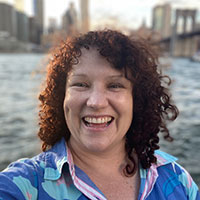 Vanessa A. Masterson is a researcher at Stockholm Resilience Centre, Stockholm University, and associate researcher at the Department of Anthropology at Rhodes University, South Africa. She holds a PhD in Sustainability Science and her research explores cultural, personal and relational values of nature which play a critical role in our well-being and stewardship of ecosystems. She has a particular focus on participatory, emancipatory and arts-based methods to facilitate mobilization of local and Indigenous knowledge systems and perspectives in transdisciplinary arenas. Masterson leads the project ‘Powering Change with Justice’ which weaves together Indigenous knowledge and cross-scale policy analyses to examine the social and ecological impacts of the wind energy transition and alternative futures for Sámi communities in northern Sweden, and local and traditional communities in Brazil.
Vanessa A. Masterson is a researcher at Stockholm Resilience Centre, Stockholm University, and associate researcher at the Department of Anthropology at Rhodes University, South Africa. She holds a PhD in Sustainability Science and her research explores cultural, personal and relational values of nature which play a critical role in our well-being and stewardship of ecosystems. She has a particular focus on participatory, emancipatory and arts-based methods to facilitate mobilization of local and Indigenous knowledge systems and perspectives in transdisciplinary arenas. Masterson leads the project ‘Powering Change with Justice’ which weaves together Indigenous knowledge and cross-scale policy analyses to examine the social and ecological impacts of the wind energy transition and alternative futures for Sámi communities in northern Sweden, and local and traditional communities in Brazil.
https://www.stockholmresilience.org/meet-our-team/staff/2011-11-02-masterson.html
Lisa Pelling [Head of Arena Idé, Political Scientist and Media Commentator]
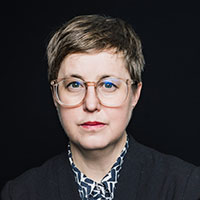 Lisa Pelling is a Swedish political scientist and the head of the progressive think tank Arena Idé. She holds a Ph.D. from the University of Vienna, with expertise in migration, democracy, and welfare. Pelling has previously worked at the Swedish Ministry for Foreign Affairs and as Secretary-General of the International Union of Socialist Youth. She is a regular contributor to Dagens Arena and Social Europe, and has co-authored several books, including Det svenska missnöjet. She is also a frequent media commentator.
Lisa Pelling is a Swedish political scientist and the head of the progressive think tank Arena Idé. She holds a Ph.D. from the University of Vienna, with expertise in migration, democracy, and welfare. Pelling has previously worked at the Swedish Ministry for Foreign Affairs and as Secretary-General of the International Union of Socialist Youth. She is a regular contributor to Dagens Arena and Social Europe, and has co-authored several books, including Det svenska missnöjet. She is also a frequent media commentator.
Ingrid M. Rieser [Host Forest of Though Podcast]
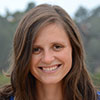 Ingrid M. Rieser works with communication in audio, film and writing, and is the host of the Forest of Thought podcast. In her podcast and work Ingrid is interested in exploring how we can open up the possibilities for different modes of thinking and being in the world – modes that might help us live well together on planet Earth. Her background is in economics, sustainability, education and filmmaking.
Ingrid M. Rieser works with communication in audio, film and writing, and is the host of the Forest of Thought podcast. In her podcast and work Ingrid is interested in exploring how we can open up the possibilities for different modes of thinking and being in the world – modes that might help us live well together on planet Earth. Her background is in economics, sustainability, education and filmmaking.
Marika Palmér Rivera [Research Officer, the Swedish Trade Union Confederation (LO), author]
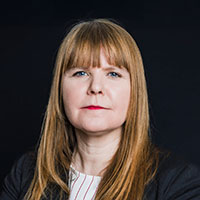 Marika Palmér Rivera is a research officer at the Swedish Trade Union Confederation (LO), specializing in Just Transition Policy. With a Master of Science in Environmental Engineering, she works to ensure the green transition is socially sustainable and fair for workers. She is a co-author of the book Livet som pågår här, which explores how communities perceive and cope with climate change. Rivera is a public voice in the climate policy debate, advocating for equitable solutions.
Marika Palmér Rivera is a research officer at the Swedish Trade Union Confederation (LO), specializing in Just Transition Policy. With a Master of Science in Environmental Engineering, she works to ensure the green transition is socially sustainable and fair for workers. She is a co-author of the book Livet som pågår här, which explores how communities perceive and cope with climate change. Rivera is a public voice in the climate policy debate, advocating for equitable solutions.
Pella Thiel [Author, Activist and Educator]
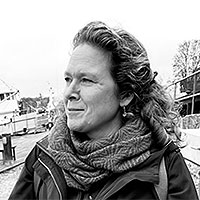 Pella Thiel is a maverick ecologist, activist and author who works with relational, systemic activism, change processes and leadership för a society in harmony with nature. She is a knowledge expert in the UN Harmony with Nature initiative and co-founder of swedish hubs of international networks like the Swedish Transition Network and End Ecocide Sweden. She also teaches ecopsychology and is a part of the eco-psychology/art/activist NGO Lodyn.
Pella Thiel is a maverick ecologist, activist and author who works with relational, systemic activism, change processes and leadership för a society in harmony with nature. She is a knowledge expert in the UN Harmony with Nature initiative and co-founder of swedish hubs of international networks like the Swedish Transition Network and End Ecocide Sweden. She also teaches ecopsychology and is a part of the eco-psychology/art/activist NGO Lodyn.
May-Britt Öhman [Associate Professor Environmental History, Researcher, Centre for Multidisciplinary Studies on Racism, CEMFOR, Uppsala University]
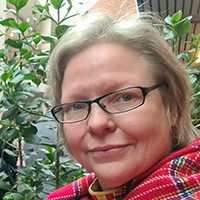 May-Britt Öhman is associate professor in environmental history, researcher at the Centre for Multidisciplinary Studies on Racism, CEMFOR, Uppsala University. Öhman is Lule and Forest Sámi of the Lule River valley, and has also Tornedalian heritage. Öhman leads the supradisciplinary research group Dálkke: Indigenous Climate Change Studies, and several research projects working towards the establishment and development of the research field Indigenous Climate Change Studies, centering Indigenous peoples’ expertise, experiences, perspectives and epistemologies, through publications, film making, organization of seminars, workshops, and networking. Exchange and collaboration with Sámi reindeer herders and Sámi associations spans over two decades. A major point of interest is to make space for Indigenous-Sámi expertise in academia – as scholars, experts, research leaders.
May-Britt Öhman is associate professor in environmental history, researcher at the Centre for Multidisciplinary Studies on Racism, CEMFOR, Uppsala University. Öhman is Lule and Forest Sámi of the Lule River valley, and has also Tornedalian heritage. Öhman leads the supradisciplinary research group Dálkke: Indigenous Climate Change Studies, and several research projects working towards the establishment and development of the research field Indigenous Climate Change Studies, centering Indigenous peoples’ expertise, experiences, perspectives and epistemologies, through publications, film making, organization of seminars, workshops, and networking. Exchange and collaboration with Sámi reindeer herders and Sámi associations spans over two decades. A major point of interest is to make space for Indigenous-Sámi expertise in academia – as scholars, experts, research leaders.
https://www.uu.se/kontakt-och-organisation/personal?query=N8-902

